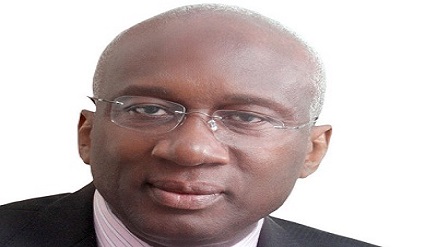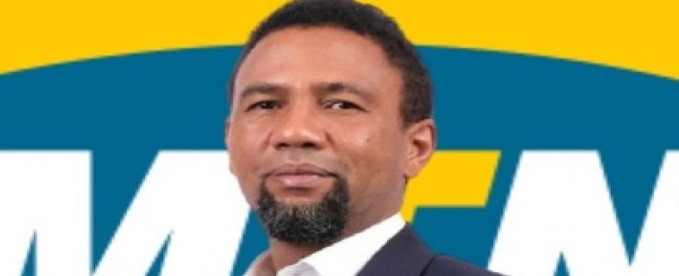Telecom
Broadband Council Pushes for Smart States, 50% 3G-Coverage

Broadband Council has made case for the increased 3G coverage to 50 percent of the Nigerian population by 2015.
This was one of the outcomes of the council’s 4th meeting in Lagos recently.
The meeting coincided with the first year anniversary of the approval of the Broadband Plan by President Goodluck Ebele Jonathan.
In reviewing progress against the broadband plan so far, Council highlighted that it had been slower than anticipated, though Broadband penetration has gone up from 6 to 6.8% since implementation commenced.
All members agreed that sustained efforts needed to be maintained to increase the penetration rate in accordance with the five year target of the Broadband Plan as full 3G rollout would lead to increased mobile broadband penetration for all.
To support its push for full 3G rollout across the nation, an Access Gap Analysis of the coverage of the country has been completed by the USPF.
The purpose of the Access Gap study by USPF is to ascertain/determine priority for unserved and underserved areas and direct appropriate investments to these areas. This will inform plans for addressing under-served and unserved areas across the country.
The USPF’s soon to be published Access Gap Analysis shows large population clusters of 500,000 and more still requiring coverage.
This significant work by the USPF has given real empirical data to the issue of which areas of the country have connectivity.
The members of the council commended the work of the USPF in this area. This work would feed into prioritised areas for USP funds.
The Council also extensively deliberated on progress made with the Smart States initiative and getting states to reduce or remove ROW charges and other related fees. Five states have so far indicated interest in being Smart States.
They are Gombe, Bayelsa, Ondo, Anambra and Katsina. Lagos and Cross Rivers state are already considered well on their way to being Smart City States. Abuja is also in a great position to be Smart
Mrs Omobola Johnson Chairman of the Council and Honourable Minister of the Ministry of Communication Technology,, said that the Smart states drive to engage governors and relevant authorities at the state and federal level to address the issue of multiple taxations will accelerate the roll out of critical infrastructure across Nigeria.
The Lagos state government had earlier signed an agreement with the Association of Licensed Telecoms Companies (ALTON) to reduce the cost of RoW from 3000 naira to 500 naira per meter, a significant reduction of 85%.
The aim of the Smart States initiative is to ensure that effective measures are adopted to remove arbitrary charges and eradicate multiple taxations across the nation.
Previous research by the Ministry revealed that ROW charges, levies and taxes contributed about 70% to the cost of rolling out infrastructure in several states.
Also, a collaborative agreement between the Ministries of Communication Technology (including the NCC) and Environment (which includes NESREA) has been gazetted and is now in place to help ease bottlenecks concerning base station deployment. An MOU that outlines the roles and responsibilities of each department with respect to base station deployment and approvals of Environmental Impact Assessments necessary for effective service delivery in the telecom sector is now operational.
In addition, the timeline for the processing of Environmental Impact Assessment (EIA) reports will no longer exceed 90 days, another obstacle often highlighted by Operators.
The push by the Council for the release of more spectrum by the NFMC and NCC is yielding positive results. The Nigerian Communications Commission successfully auctioned the 2.3GHz spectrum band to Bitflux Communications in February this year.
The auction is in line with the mandated timeline of the broadband plan. The release of complementary Infraco licenses will follow shortly. NFMC continues to work closely with the NBC and NCC with regards to digital dividends and the release of 2.5GHz and 2.6GHz planned for later this year.
Incumbent occupants of the spectrum have been engaged and a mode of transition is being worked out.
The Council also deliberated on the Cybercrime Bill and work done so far on TV White Space committee.
The Cyber Crime Bill passed through the First Reading in the National Assembly in the first quarter of 2014, and the Bill is awaiting Second Reading in both the Senate and House of Representatives.
The NFMC has approved the piloting of TV whitespace technology in Nigeria and the pilot will commence with 6 companies offering services in unserved and underserved areas. Pilots will be for one year under licensing from NCC.
Purpose of the pilot is to establish the TVWS solution as a viable rural access technology for the Nigerian context.
Recall that the Broadband Council had after its third meeting on the 17th of February launched an awareness campaign that will communicate the transformational benefits of broadband to all Nigerians to encourage its use and adoption and inform where broadband is also accessible in local communities.
The Campaign tagged ‘’Connected Nigeria, Connected Nigerians’’ is on-going and will raise awareness and disseminate information of the benefits of Broadband and how broadband is creating economic and social value for Nigerians.
The Council has also inaugurated a Media Advisory Council to help drive the broadband awareness campaign.
Telecom
PAT Taps Osi as CEO

Pan African Towers (PAT), a Nigerian infrastructure provider serving 9mobile and Spectranet, has appointed Echezona Osi as chief executive officer.

Echezona Osi
Adefolarin Ogunsanya, company’s, board chairman, explained in a statement that Osi would succeed Oladipo Badru, whose tenure lasted nine months in acting CEO position. Osi has more than 28 years of experience in the telecommunications sector across various regions of Africa.
Prior to his appointment as CEO, he had served as the head of network deployment at Airtel Nigeria, operations director and chief technical information officer at MIC Tanzania, chief technology officer roles at IPT PowerTech Nigeria, Rhino Niger Networks and Biswal Nigeria.
He obtained a degree in electrical/ electronic engineering from the University of Benin and a postgraduate diploma in data science and business analytics from the University of Texas.
Telecom
NCC Introduces N10m Licence Fee for Bulk SMS Service

Companies sending bulk international text messages, also known as Application-to-Person (A2P) messages, will now have apply for a licence that costs N10 million.

This is part of new rules introduced by the Nigerian Communications Commission (NCC) aimed at cleaning up the system, fighting fraud, blocking spam messages and stopping money from leaving the country unchecked.
These A2P messages are the kind customers get from banks, online stores, hospitals and political campaigns, automated texts sent from apps to their phones.
According to the commission, the bulk international text message system has been poorly regulated, allowing misuse and invasion of privacy.
“The International SMS Service Ecosystem in Nigeria has not been fully brought under regulatory control. It has been observed that the excessive use of the Short Message Service has led to fraud, spam and illegal activities,” the NCC said.
The regulator warned that without action, the problem would worsen as more people use mobile phones and digital services.
To solve this, the NCC is creating a central platform, or gateway, through which all international bulk text messages must pass through.
The agency said this would help to monitor messages in real time, ensure proper fees are paid, and make sure the money stays in Nigeria where it can contribute to the economy.
As part of the incoming change, service providers must follow strict rules, including strong data protection, spam filters, and message encryption.
Also, they must also work with local mobile networks and make sure all messages come from a verified sender
The NCC warned that any message without a proper sender ID will be blocked and not delivered to users.
To protect users from unwanted texts, the new rules say companies must get clear permission before sending any promotional content.
The rule also says people must also be able to choose whether they want to receive such messages or not.
Companies are now required to keep records of all messages for at least six months and must clearly state all charges involved.
The NCC said fees for help requests, cancellations, or service info must be transparent and not include hidden charges.
The commission will issue licences to several providers to encourage healthy competition but may limit new licences if needed.
Only companies that show they can stop fraud and safely deliver messages will be allowed to operate. They must also regularly report their message traffic and finances to the NCC.
It warned that any company that breaks the rules risks getting fined, suspended, or having its licence revoked.
Offences like charging illegal tariffs, ignoring security rules, or avoiding taxes will be punished, the NCC said.
The commission added that the new rules follow the Nigerian Data Protection Act 2023 and support the federal government’s goal of strengthening cybersecurity and controlling Nigeria’s digital space.
The framework will also be reviewed from time to time to keep up with new technology and market trends.
Telecom
MTN Nigeria Targets $1Bn Cloud Market with Largest Modular Data Centre

MTN Nigeria has launched what it claims is the country’s largest prefabricated modular data centre, marking a bold push into the country’s fast-growing cloud market and taking aim at global giants such as Amazon Web Services, Microsoft Azure and Google Cloud.

Karl Toriola, CEO, MTN Nigeria.
The shift comes as demand for cloud services in Nigeria soars — driven by the uptake of mobile apps, fintech tools and e-learning platforms — while foreign providers have become costlier in the wake of the naira’s sharp devaluation.
“This is one of the biggest data centres in West Africa and probably one of the biggest in Africa,” said Karl Toriola, CEO, MTN Nigeria.
He described the new Tier III-certified facility, with locally hosted cloud services, as “transformative for the technology ecosystem in Nigeria and very supportive of the federal government’s agenda”.
MTN Nigeria, the country’s largest telecoms provider, has so far invested $120m in the first phase, delivering an IT load of 4.5MW. A second phase, set to double capacity to 9MW, is budgeted at $135m.
“We already have data centres that are running our existing capacities,” Toriola said.
“We will go to 9MW in short order, possibly 14MW, and we can expand even further.”
He said the facility would allow local hosting for tech developers, large enterprises including banks and oil companies, and government agencies — markets long dominated by foreign cloud providers.
“Multinational companies such as Netflix, Facebook and Instagram can also host a lot of their data here. That improves the quality of service and reduces the cost of storage,” he added.

 Broadcasting1 day ago
Broadcasting1 day agoNigeria Week Ahead: Inflation, Oil and Naira in focus

 News1 day ago
News1 day agoEFCC: Accusations Against Our Chairman Are Baseless and Misleading

 Broadcasting3 hours ago
Broadcasting3 hours agoA Billion-Dollar Obsession in 90-Second Bites

 General News1 hour ago
General News1 hour agoWoodhall Capital and Partners Launch ₦1.5Bn Fund

 General News1 hour ago
General News1 hour agoAM Best Reaffirms Stable Outlook for Cyber Insurance Market

 News1 hour ago
News1 hour agoFirstBank, NLNG, Shell back QEDNG Creative Powerhouse Summit

 News1 hour ago
News1 hour agoExperts Urge MSMEs to Build Strong Partnerships in Solving Problems,

 E-Financial58 minutes ago
E-Financial58 minutes agoAfrica Launches PAPSSCARD, First Pan-African Card Scheme


























